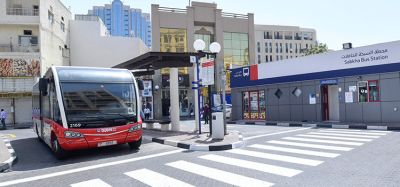Denver votes to create city’s first transportation department
- Like
- Digg
- Del
- Tumblr
- VKontakte
- Buffer
- Love This
- Odnoklassniki
- Meneame
- Blogger
- Amazon
- Yahoo Mail
- Gmail
- AOL
- Newsvine
- HackerNews
- Evernote
- MySpace
- Mail.ru
- Viadeo
- Line
- Comments
- Yummly
- SMS
- Viber
- Telegram
- Subscribe
- Skype
- Facebook Messenger
- Kakao
- LiveJournal
- Yammer
- Edgar
- Fintel
- Mix
- Instapaper
- Copy Link
Posted: 20 November 2019 | Intelligent Transport
Although there has been a transport a division within the Denver Department of Public Works, January 2020 will see the new transport department take greater control of city-owned transit systems.


Denever's RTD has recently launched a journey planning feature on its Transit app.
With a 73 per cent majority, voters have chosen to create the Denver Department of Transportation and Infrastructure, in which the city bureaucracy will focus more on walking, cycling and transit.
The current head of Public Works, Eulois Cleckley, will reportedly lead the transition. “With the creation of this new department comes an enhanced project delivery approach that takes transportation and infrastructure projects from concept to completion in a more integrated, sequential and coordinated manner, he said. “We will be focused on creating multi-modal networks, positioned to build them more efficiently, and have the charter authority to try more innovative approaches.
“I think this action by the voters just solidifies our structure currently and just enables those additional potential transit services,” he continued.
Mayor of Denver, Michael Hancock, has committed to double journeys taken by foot, bike, bus and train by 2030 while reducing single occupancy car journeys from 73 per cent to 50 per cent, and the new department aims to push towards these goals.
“Our transportation and mobility system must provide multiple ways to get around town for all people – a system that connects neighbourhoods, provides access and not barriers, and creates unique places,” Hancock said. “To do that, our city streets need to change to accommodate more transit riders, bike riders and pedestrians.”
The city has already rolled out bus lanes which is expected to increase bus speed by 42 per cent, which is considered necessary as the Denver population is said to have grown by 100,000 since 2012.
The consolidation will reportedly save $7.3 million annually, which Cleckley said will fund transport projects.
Related topics
Business Models, Public Transport, Transport Governance & Policy
Related cities
Denver
Related organisations
Denver Department of Public Works
Related people
Eulois Cleckley, Michael Hancock








